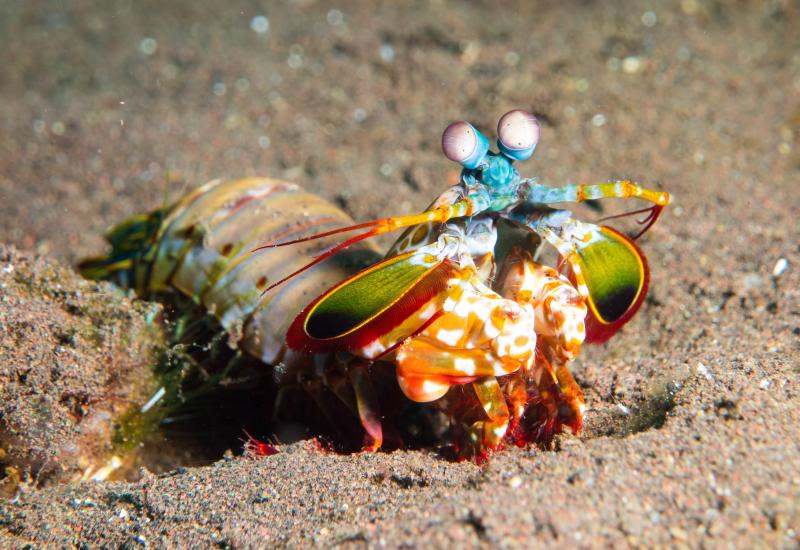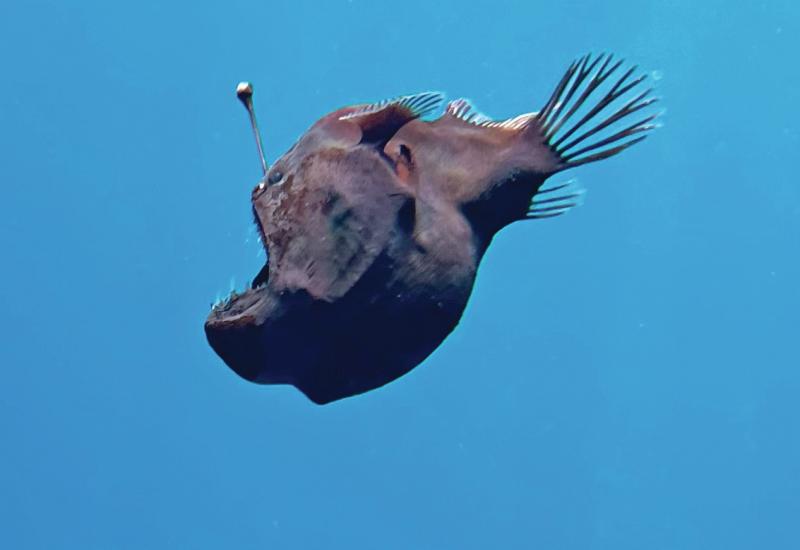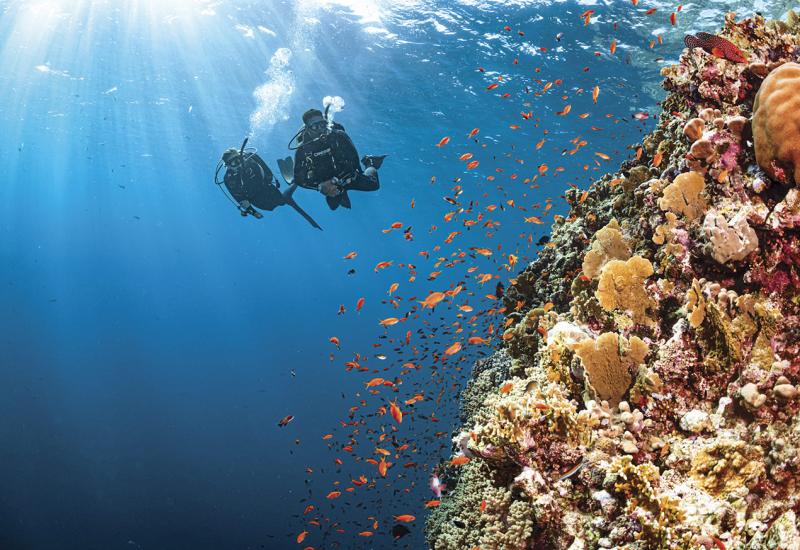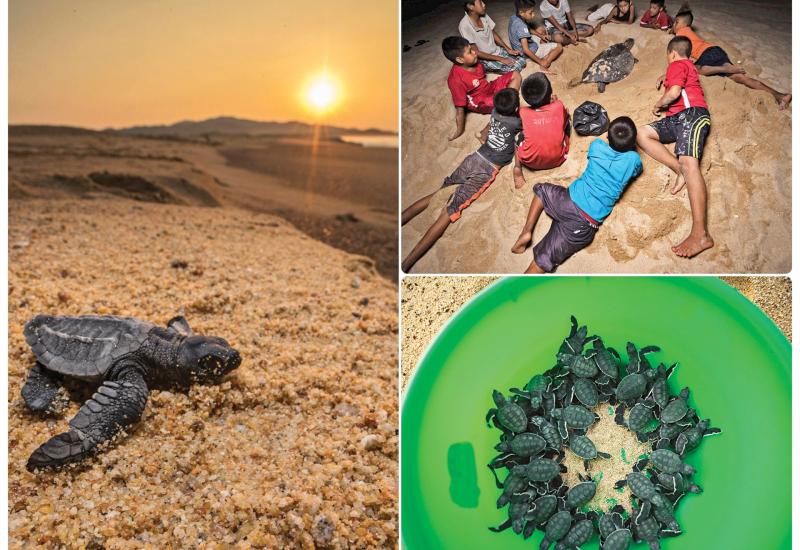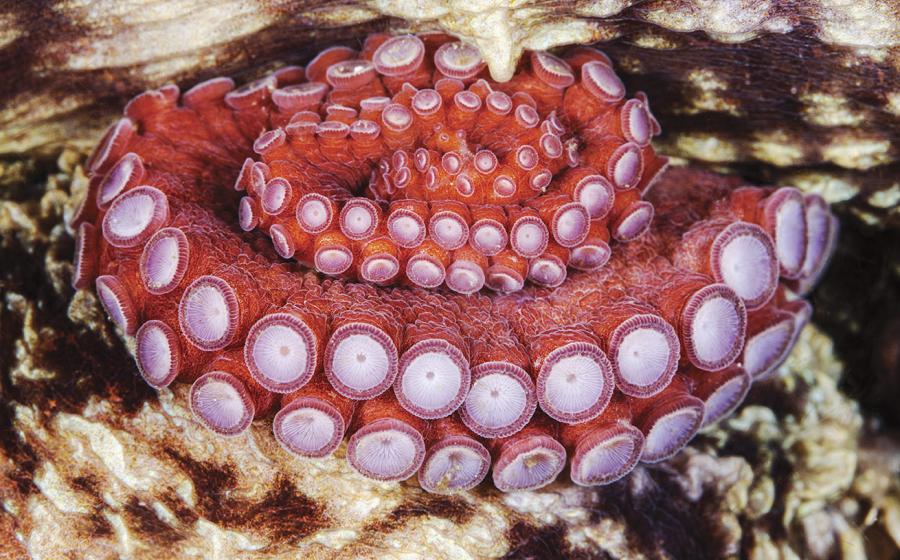A BLUE Wave of Films

BLUE Ocean Film Festival 2012
Samantha Whitcraft
Our Ocean Planet marine conservation expert, Samantha Whitcraft of Shark Savers, reports from the 2012 BLUE Ocean Film Festival and Conservation Summit:
We’ve all had the experience of seeing a film that profoundly changed us, made us think about our lives or our place in the world in whole new way. Indeed, in the arena of ocean conservation, films are playing an increasingly important role in changing public perception about the state of our oceans. Some of the first films in this genre that caught the public attention included Shark Water (2006) about the cruel and unsustainable practice of shark finning, Oscar-winning The Cove (2009) about the needless slaughter of dolphins in Taiji, Japan associated with the violent and cruel captivity trade, and The End of the Line (2009) about global overfishing and wasteful by-catch. These films clearly helped bring critical conservation issues and core ethical questions to a broader audience. They also likely helped to create a new audience for more such films, and the recent 2012 BLUE Ocean Film Festival and Conservation Summit, now in its third year, just finished choosing the best of the best to nominate, screen, and celebrate in Monterey, California.
The nomination categories were varied including people and the sea, children’s films, animated films, foreign language film, ocean sports, issues, and emerging filmmaker, along with over a dozen more categories. In all, about 100 films were nominated (or honorably mentioned) and screened throughout the week. ‘Best of the Festival’ was awarded to The Island President about President Mohamed Nasheed’s struggles with other countries to negotiate international carbon emissions a minimum safe level (350 parts per million of global atmospheric CO2; we are currently at 392 ppm and rising) to keep his low-lying island nation of the Maldives from disappearing with the coming sea-level rise. The scene of a President holding a cabinet meeting underwater with all the ministers in full scuba gear leaves a lasting impression and drives home the point that a nation under water is no longer a nation. The power of the film is that it made the complicated and often technical issue of ‘climate change’ into a personal story; it gave a face to an often-intangible concept.
Admittedly, it just wasn’t possible to see every film but the ones that truly stood out as must sees for their power to move an audience and potentially change perceptions were The Big Fix and Planet Ocean. The filmmakers describe The Big Fix as "an investigation into the massive BP oil spill, digging deeper to reveal more unsettling truth about the world we live in today, uncovering a vast network of corruption that caused one of the greatest environmental catastrophes of all times." As powerful as that description is, it doesn’t do the film justice. Many in the audience were involved in responding to that disaster, from oiled birds to blue fin tuna surveys, but everyone seemed to walk away stunned at the on-going magnitude of the impacts and the political implications today. Planet Ocean also carried a powerful message about our lost connection to our oceans, oceans that are the lifeblood of the planet, ecologically and economically. But beyond the message this film added the element of stunning visuals including long, coastal aerial shots and wide-angle panoramas of oceanscapes rarely seen. Simply, this is perhaps one of the most beautiful ocean films ever made.
Two additional films were note-worthy because of their emphasis on the role of scuba diving in our oceans’ futures: Alien Deep: Inner & Outer Space and Now, More Than Ever, Sharks Count. The first film makes a detailed and fascinating comparison between mankind’s potential to successfully colonize Mars versus the oceans. Not surprisingly, it turns out living full-time at sea is just around the corner in terms of needed technology development such as sustainable mariculture, converted oil platforms, and manned submersibles, whereas terraforming Mars is still largely the stuff of science fiction. The second short film interviews some of Florida’s pioneering divers, some of the first men and women to enter the ocean on scuba, about their memories of shark populations. Through the interviews it becomes clear that a “shifting baseline” of sharks has occurred in a single generation – and then goes on ask divers everywhere to log their shark sightings for future generations and for local conservation action.
The BLUE Ocean Film Festival is also a conservation summit and this year drew an impressive list of ocean dignitaries including, of course, “Her Deepness” Dr. Sylvia Earle – who among many other achievements and accolades was Time magazine's first-ever "Hero for the Planet." Several of the Cousteau family, and film director James Cameron were also in attendance. In fact, Cameron received the festival’s Lifetime Achievement Award for his dedication and accomplishments in ocean exploration. During his acceptance speech, he shared two important revelations with the gathered crowd. First, he stated that from his perspective, eating a plant-based diet is big part of being a conservationist suggesting he has done his homework on the issue. Then he announced that his future films will address the major issues facing our oceans; that he has come to believe that it is the most important challenge we face. Having the creative power and genius of James Cameron, the man behind The Abyss, Titanic and Avatar, working on the side of conservation is certainly good news for both our oceans and audiences everywhere!
Apart from any future films that James Cameron makes, most of these films won’t find large-scale distribution so they probably won’t be “coming to a theatre near you”, although BLUE does have a traveling version of the festival that would be worth attending. And all these films are more than worth seeking out on line or purchasing to add to your own home library. Film isn’t a new medium but due to the availability of hand-held HD video cameras and laptop editing, the production of films is now more accessible to those in the ocean conservation community who want to tell a story, send a message, and change the world. These important and beautiful films could help urn the tide in our challenge to save our oceans, so let’s hope audiences keep watching.
The BLUE Ocean Film Festival and Conservation Summit will be held again in 2014. For more information, including the 2012 film catalog, go to blueoceanfilmfestival.org.
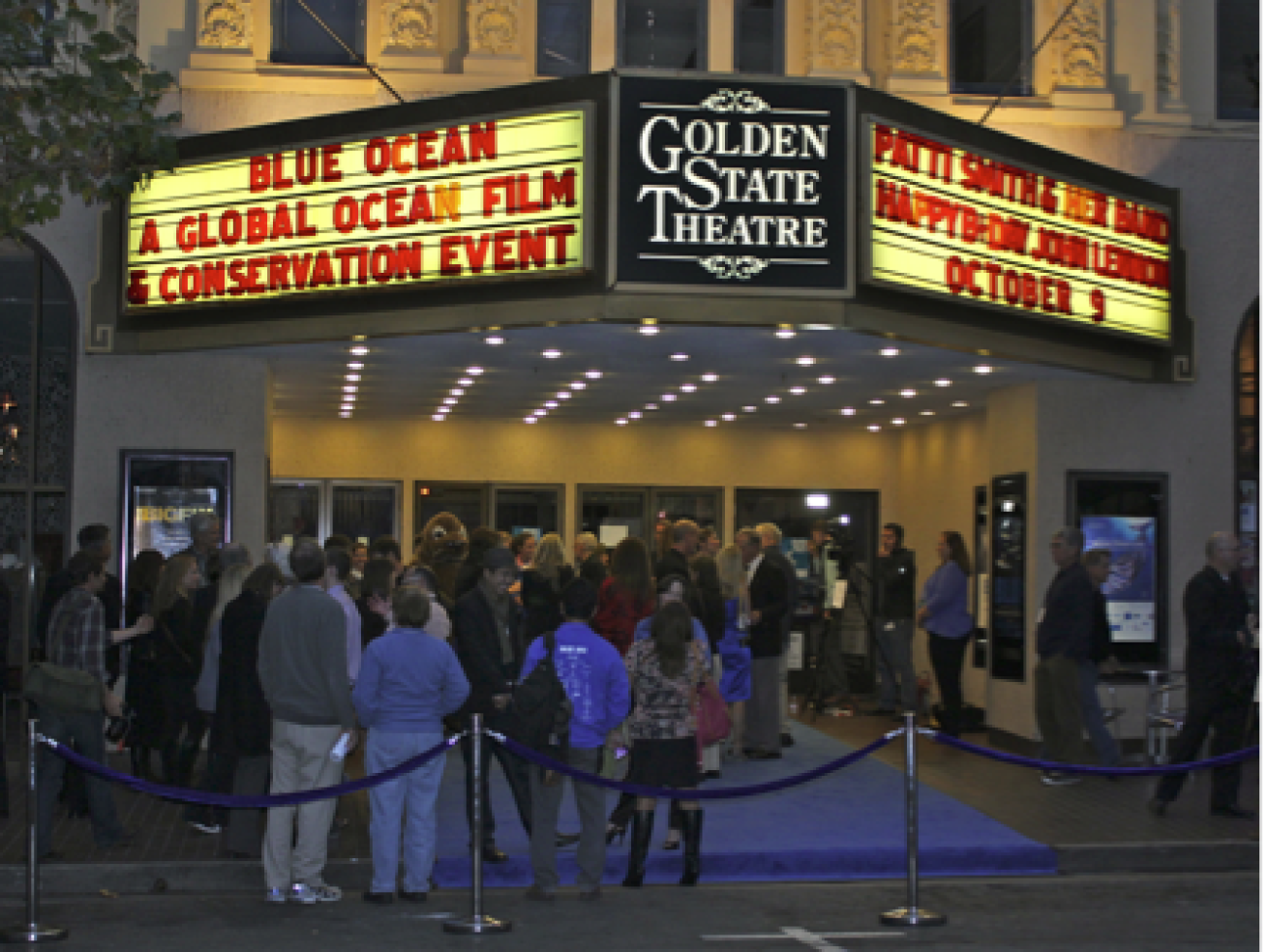
Samantha Whitcraft
Our Ocean Planet marine conservation expert, Samantha Whitcraft of Shark Savers, reports from the 2012 BLUE Ocean Film Festival and Conservation Summit:
We’ve all had the experience of seeing a film that profoundly changed us, made us think about our lives or our place in the world in whole new way. Indeed, in the arena of ocean conservation, films are playing an increasingly important role in changing public perception about the state of our oceans. Some of the first films in this genre that caught the public attention included Shark Water (2006) about the cruel and unsustainable practice of shark finning, Oscar-winning The Cove (2009) about the needless slaughter of dolphins in Taiji, Japan associated with the violent and cruel captivity trade, and The End of the Line (2009) about global overfishing and wasteful by-catch. These films clearly helped bring critical conservation issues and core ethical questions to a broader audience. They also likely helped to create a new audience for more such films, and the recent 2012 BLUE Ocean Film Festival and Conservation Summit, now in its third year, just finished choosing the best of the best to nominate, screen, and celebrate in Monterey, California.
The nomination categories were varied including people and the sea, children’s films, animated films, foreign language film, ocean sports, issues, and emerging filmmaker, along with over a dozen more categories. In all, about 100 films were nominated (or honorably mentioned) and screened throughout the week. ‘Best of the Festival’ was awarded to The Island President about President Mohamed Nasheed’s struggles with other countries to negotiate international carbon emissions a minimum safe level (350 parts per million of global atmospheric CO2; we are currently at 392 ppm and rising) to keep his low-lying island nation of the Maldives from disappearing with the coming sea-level rise. The scene of a President holding a cabinet meeting underwater with all the ministers in full scuba gear leaves a lasting impression and drives home the point that a nation under water is no longer a nation. The power of the film is that it made the complicated and often technical issue of ‘climate change’ into a personal story; it gave a face to an often-intangible concept.
Admittedly, it just wasn’t possible to see every film but the ones that truly stood out as must sees for their power to move an audience and potentially change perceptions were The Big Fix and Planet Ocean. The filmmakers describe The Big Fix as "an investigation into the massive BP oil spill, digging deeper to reveal more unsettling truth about the world we live in today, uncovering a vast network of corruption that caused one of the greatest environmental catastrophes of all times." As powerful as that description is, it doesn’t do the film justice. Many in the audience were involved in responding to that disaster, from oiled birds to blue fin tuna surveys, but everyone seemed to walk away stunned at the on-going magnitude of the impacts and the political implications today. Planet Ocean also carried a powerful message about our lost connection to our oceans, oceans that are the lifeblood of the planet, ecologically and economically. But beyond the message this film added the element of stunning visuals including long, coastal aerial shots and wide-angle panoramas of oceanscapes rarely seen. Simply, this is perhaps one of the most beautiful ocean films ever made.
Two additional films were note-worthy because of their emphasis on the role of scuba diving in our oceans’ futures: Alien Deep: Inner & Outer Space and Now, More Than Ever, Sharks Count. The first film makes a detailed and fascinating comparison between mankind’s potential to successfully colonize Mars versus the oceans. Not surprisingly, it turns out living full-time at sea is just around the corner in terms of needed technology development such as sustainable mariculture, converted oil platforms, and manned submersibles, whereas terraforming Mars is still largely the stuff of science fiction. The second short film interviews some of Florida’s pioneering divers, some of the first men and women to enter the ocean on scuba, about their memories of shark populations. Through the interviews it becomes clear that a “shifting baseline” of sharks has occurred in a single generation – and then goes on ask divers everywhere to log their shark sightings for future generations and for local conservation action.
The BLUE Ocean Film Festival is also a conservation summit and this year drew an impressive list of ocean dignitaries including, of course, “Her Deepness” Dr. Sylvia Earle – who among many other achievements and accolades was Time magazine's first-ever "Hero for the Planet." Several of the Cousteau family, and film director James Cameron were also in attendance. In fact, Cameron received the festival’s Lifetime Achievement Award for his dedication and accomplishments in ocean exploration. During his acceptance speech, he shared two important revelations with the gathered crowd. First, he stated that from his perspective, eating a plant-based diet is big part of being a conservationist suggesting he has done his homework on the issue. Then he announced that his future films will address the major issues facing our oceans; that he has come to believe that it is the most important challenge we face. Having the creative power and genius of James Cameron, the man behind The Abyss, Titanic and Avatar, working on the side of conservation is certainly good news for both our oceans and audiences everywhere!
Apart from any future films that James Cameron makes, most of these films won’t find large-scale distribution so they probably won’t be “coming to a theatre near you”, although BLUE does have a traveling version of the festival that would be worth attending. And all these films are more than worth seeking out on line or purchasing to add to your own home library. Film isn’t a new medium but due to the availability of hand-held HD video cameras and laptop editing, the production of films is now more accessible to those in the ocean conservation community who want to tell a story, send a message, and change the world. These important and beautiful films could help urn the tide in our challenge to save our oceans, so let’s hope audiences keep watching.
The BLUE Ocean Film Festival and Conservation Summit will be held again in 2014. For more information, including the 2012 film catalog, go to blueoceanfilmfestival.org.

